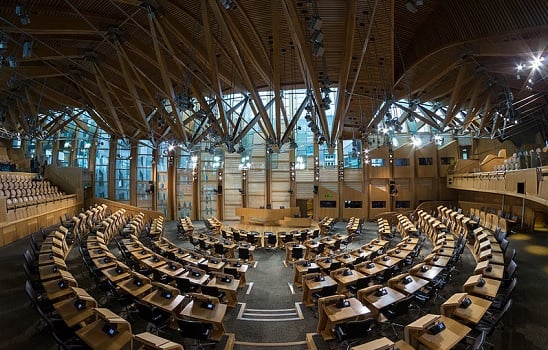
A new Culture Strategy for Scotland won't be announced until after the General Election
Photo: Colin
Scottish Culture Strategy delayed for election
Culture Secretary and staff fear the key policy document will be buried by other news if it is released before the General Election.
Scotland’s Culture Secretary has delayed publication of the country’s new Culture Strategy until after the UK General Election.
The Scottish Government has confirmed the strategy will be published “as soon as is practical” after December 12. A draft strategy was released for public consultation 18 months ago, with the final version due to be published by the end of this year.
It still could be – a new date has not been set – but it seems clear the strategy will only be made public at an expedient moment.
READ MORE:
- Grants model of arts funding must change, Creative Scotland told
- Scottish Government promises new fund to protect culture post-Brexit
- Scotland plans to make culture central to policy under new draft strategy
A Scottish Government official told ArtsProfessional the document is ready to be published, but that Culture Secretary Fiona Hyslop and her staff don’t want it to “fly under the radar”.
“Had there not been an election then things might have been different,” they said.
“We have got to think about when people will give it attention and the newspapers will be all full of Boris [Johnson] right now.”
Hyslop did not respond to a request for comment, instead referring queries back to Scottish Government staff.
Embedding culture in policy
The Culture Strategy is the first of its kind to be produced in a decade. Its draft version indicates plans to give people “a greater say” in shaping the cultural life of their communities and give culture equal importance to the economy, the environment, education and health in policy making.
Measures proposed in the draft strategy include introducing a new cultural leadership position within the Scottish Government, helping the sector and academics work together to articulate the value of culture, and exploring new funding models.
Funding is everything
Revising the model for funding Scottish culture is especially important: a recent report commissioned by Creative Scotland concluded the public grants model used since the 1940s is no longer fit for purpose. “Change is inevitable,” its author Jeanie Scott wrote.
She said this model is now “struggling to accommodate and reflect the scale, complexity and diversity of our contemporary cultural ecology, its audiences and methods of cultural consumption”.
A separate independent review found that last year Creative Scotland admitted organisations previously judged “unfundable” into its portfolio following last-minute interventions from some of its senior staff.
Join the Discussion
You must be logged in to post a comment.